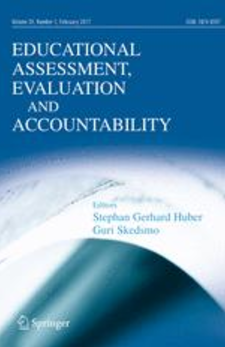Learning how to put Equity in the Driver’s Seat
To spur future research to address the specific equity goals of schools and districts, Digital Promise set out to define and test Equity in the Driver’s Seat, a collaborative process for developing practice-driven, equity-centered R&D agendas. Continue reading Learning How to Put Equity in the Driver’s Seat →
Common Guidelines for Education Research and Development
This article describes NSF and ED’s shared understanding of the roles of various types of research in generating evidence about strategies and interventions for increasing student learning. The primary audiences for this paper are agency personnel, scientific investigators who seek funding from these agencies, and those who service as peer reviewers. Continue reading Common Guidelines for Education Research and Development →
Unlocking the Potential of the “What Works” Approach to Policymaking and Practice: Improving Impact Evaluations
This paper suggests three ways to make impact evaluations more relevant to policy and practice in an effort to improve the fundamental understanding of social problems, while also generating practical guidance for mitigating those problems. Continue reading Unlocking the Potential of the “What Works” Approach to Policymaking and Practice: Improving Impact Evaluations →
Program and Policy Evaluations in Practice: Highlights from the Federal Perspective
This paper explores ways to improve the value of policy and program evaluations from the perspectives of current and former government officials.Continue reading Program and Policy Evaluations in Practice: Highlights from the Federal Perspective →
Estimating the Effects of Interventions that are Deployed in Many Places: Place-Randomized Trials
Place-randomized trials have been mounted in a variety of countries to estimate the relative effects of interventions that are intended to ameliorate problems or improve conditions in organizations and geopolitical jurisdictions. This article presents studies in which villages, police hot spots, housing developments, hospital units, schools, and other entities are the units of random allocation. Continue reading Estimating the Effects of Interventions That are Deployed in Many Places: Place-Randomized Trials →
Mixing Methods in Randomized Controlled Trials (RCTS): Validation, Contextualization, Triangulation, and Control
This paper describes the mixed research approaches in a Randomized Control Trial of a school principal professional development program and illustrates key challenges from validating instruments and measures of mediator variables to examining how contextual factors interact with the treatment. Continue reading Mixing methods in randomized controlled trials (RCTs): Validation, contextualization, triangulation, and control →





